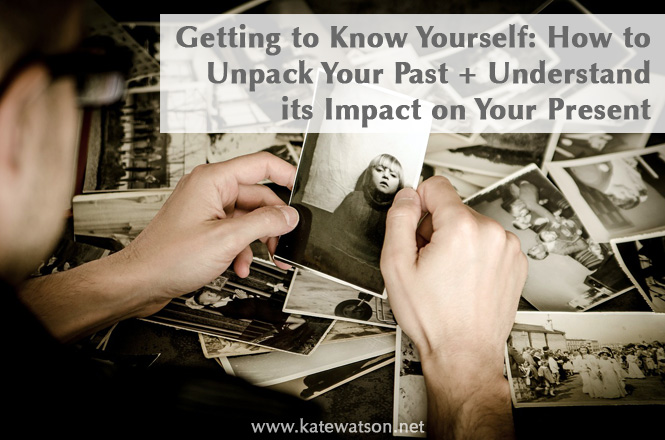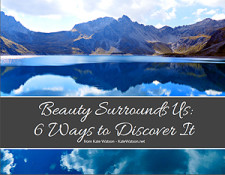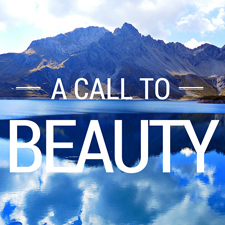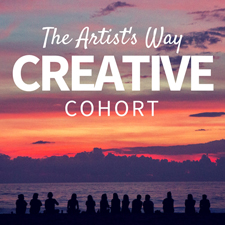
Last week, I wrote about the importance of getting to know yourself and provided three basic tools to aid the process. As I thought further about this concept, I realized that I have a lot more to say about it so, over the next few weeks, I’m going to delve into some components that make each of us unique.
The first topic I’d like to address is understanding your past and how it affects your present. I’ve written before about how our upbringing impacts who we become.
Understanding Your Past: The Facts
I’d like you to think for a minute about how your upbringing might have impacted you. If you’ve got the journal I suggested last week, open it up and write down some facts about your upbringing. For example, mine might say:
- White
- Female
- Born to married, college-educated parents
- Grew up in the American south
- Parents later divorced
- Raised by a single mother from age 6
- Lower middle class
- Parents and extended family primarily Republican
These are a few things that are top of mind for me in this moment. Your list might be similar, different, or on another topic altogether. By writing these facts about my upbringing down, I am acknowledging from where I came.
Once you have made your list, would you say it matches that of others you grew up with, or did you feel different somehow? Two ways I felt different from my peers was the size of my family (2) and our household income (less).
Understanding Your Past: The Stories
Have you ever noticed that the events you remember most clearly are emotionally charged? In his books Self Matters and The Self Matters Companion, Dr. Phil calls these Defining Moments and suggests that you catalog and dive into the 10 most influential moments of your life and the stories you’ve told yourself about those times.
To do this, take a look back at various periods of your life—preschool, grade school, high school, college, young adulthood, adulthood, middle age… What memories stand out as particularly important?
When you have noted a few memories, think through the details of one: Note your age, location, who you were with at the time, what happened, and what emotions you experienced. Because these memories are emotionally charged, some might be painful.
If remembering an event is in any way traumatic, you have my full permission to distance yourself from it. Put it away for now or look at it instead from the perspective of your present self.
After you’ve walked through an event, consider: What did this experience teach you? Is what you learned fair, true, and beneficial? Does it serve you now and, if so, how? Repeat this process for your remaining Defining Moments.
Understanding Your Past: The Lessons
Recalling your stories and what they taught you brings me to the next facet of your upbringing: The lessons you learned. The following are some questions to ponder or journal about in order to identify and acknowledge your earliest life lessons:
- I was raised to believe…
- My mother/primary caregiver taught me that life…
- My father/primary caregiver said that I…
- It was commonly understood in my family that…
- My peers taught me that…
The lessons you learned while growing up, like the experiences you remember, may be either positive and negative. You may not have assigned value judgments to them at the time but now you can likely look back and see how some of the things you learned serve you and some do not.
For example, learning not to touch a hot stove or how to persevere serves you. “Learning” that you weren’t as good as your peers, because they told you so, does not serve you.
This exercise is simply about uncovering and acknowledging the lessons you’ve learned so you can better understand who you are and how your upbringing continues to impact you. We’re not here to cast blame on our parents or anyone else. But this is important work.
As Oprah writes in What I Know For Sure: “Like me, you may have experienced things that caused you to deem yourself unworthy. I know for sure that healing the wounds of the past is one of the biggest and most worthwhile challenges of life. It’s important to know when and how you were programmed so you can change the program.
“Doing so is your responsibility, no one else’s. There is one irrefutable law of the Universe: We are each responsible for our own life. If you’re holding anyone else accountable for your happiness, you are wasting your time. You must be fearless enough to give yourself the love you did not receive.”
For the record: I believe that every parent, even those with the best of intentions, screws up their kids in some way. It’s almost impossible not to. But, and this is a big but, most parents were simply doing the best they could at the time.
When you start to look into your own parents’ backgrounds, you’ll see how their experiences impacted the lessons they taught you, intentionally and inadvertently. As Oprah says, it’s our job to acknowledge and heal any programming that doesn’t serve us. So how do we do that?
Awareness is the first step to healing. You can’t heal anything you can’t acknowledge. When you start to acknowledge your past and the the lessons you learned there, all kinds of opportunities for healing unfurl.
“Begin noting how every day brings a new opportunity for growth,” Oprah explains, “how buried disagreements with your mother show up in arguments with your spouse, how unconscious feelings of unworthiness appear in everything you do and didn’t do.
“All of these experiences are your life’s way of urging you to leave the past behind and make yourself whole. Pay attention. Every choice gives you a chance to pave your own road.”
I agree. Accepting the past and moving forward is the only way to live your best life. If you need counseling, get some. If journaling and meditating are enough, make time for those. Your future will thank you.
Cheers,

For part three of the getting to know yourself series, click here.

















Claiming Your Core Values + Motivations » KateWatson.net - […] and motivations, you might want to first look back at prior topics we’ve covered, specifically understanding your past and uncovering your key beliefs. Not to dwell on the subject but our pasts often shape how we think […]
Uncovering Your Key Beliefs » KateWatson.net - […] getting to know yourself series. (If you’re just joining in, part one is here and part two is here.) In this post, we’re talking about belief systems, how they were formed, and how they impact us […]
Getting to Know Yourself: 3 Basic Tools » KateWatson.net - […] For part two of the getting to know yourself series, click here. […]